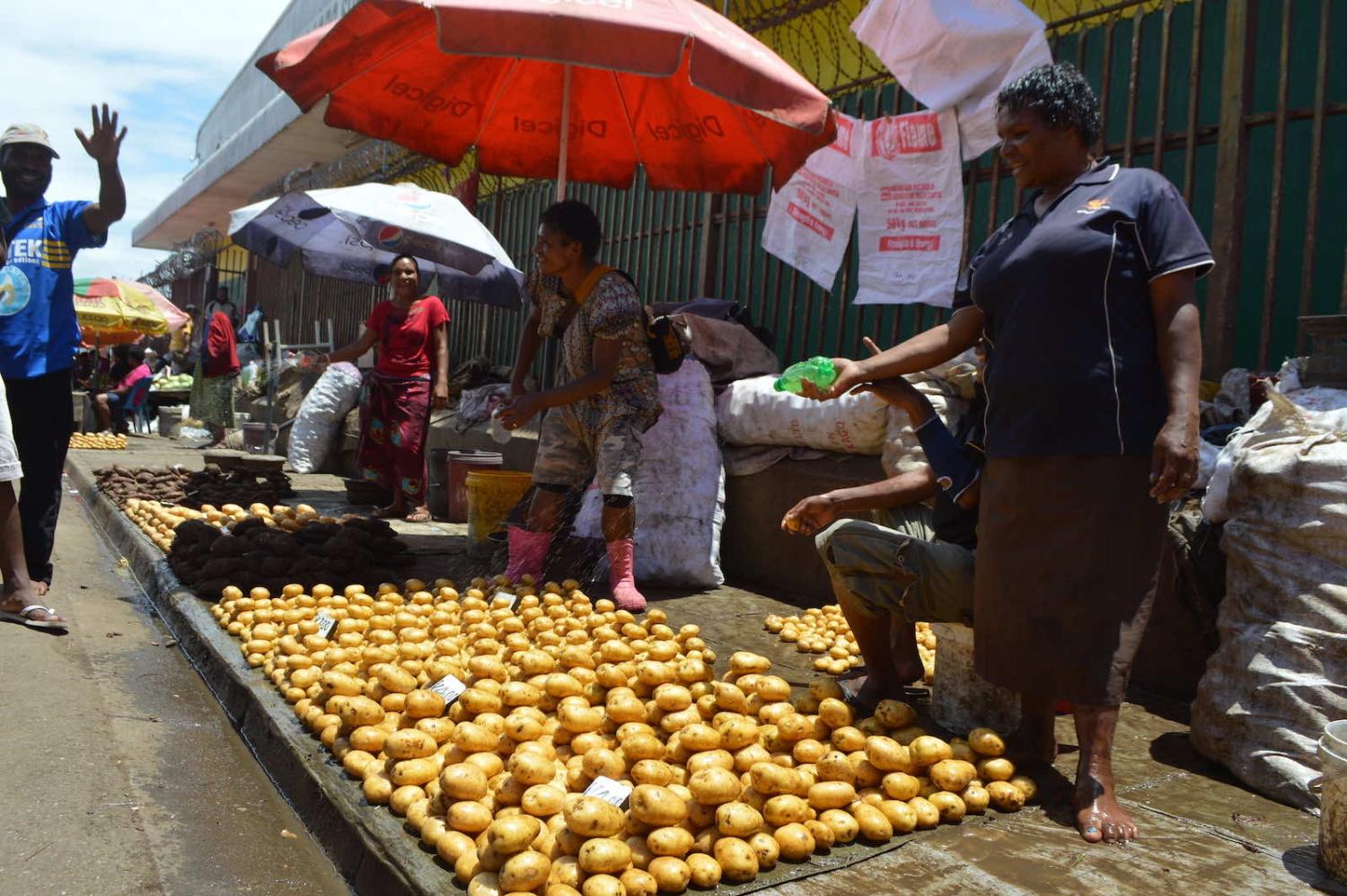Papua New Guinea’s informal economy is a sleeping giant with massive potential. This untapped sector can be an engine for broad based growth right across the country.
Informal economic activities cover legal enterprises that are not registered for taxation and not counted in GDP calculations. The informal economy is the lifeline of more than 80 per cent of PNG’s population who depend on informal semi-subsistence sources of food and income.
Government policy has taken an enlightened approach to increase opportunities in the informal economy, with the aim of facilitating the transition of informal businesses into higher value-added small and medium enterprises in the coming decade. Progress towards realising this objective requires accelerated growth in diversified small businesses that are productive and sustainable.
Despite this potential, the informal economy is riddled with barriers and challenges. Some of the major issues include a lack of finance, knowledge and skills, or even materials and technology. Illiteracy also poses a challenge, as does the deteriorating state of infrastructure across the country, which increases the cost of transportation and can result in poor access to markets.
The majority of entrepreneurs work principally to meet survival needs. They lack access to suitable extension services and skills training opportunities which would allow them to create larger and more enduring businesses.
The free and easy movement of people, goods and services is heavily constrained in PNG and this affects progress of innovation in the conduct of economic activities.
Where innovation takes place, this is driven mainly by male entrepreneurs with specialised knowledge in specific sectors, such as agricultural extension workers – in essence, those who help with additional training for farmers. Many of these entrepreneurs were formerly employed in government or industry but eventually left the workforce and established their own informal businesses. By living and operating in local communities, they share their skills and knowledge in many areas where extension services would otherwise not be available. They provide informal training and employment for young people who often start out as helpers and learn basic skills under supervision. But the opportunity to grow their business is constrained.
Lack of access to financial services is a significant problem in PNG, manifesting in an inability to obtain credit. Consequently, those people keen to begin a business are highly dependent on informal, personal and family sources of finance which limit their potential to grow. This is further compounded by low levels of education and high illiteracy among informal and agricultural workers, with rural inhabitants and women especially disadvantaged.
It also means the skills required to use new technology and methods of production are also often lacking – along with the capital to obtain and operate expensive equipment, much of which would need to be imported. Incentives for local industry to produce and promote the use of local equipment and materials at affordable costs are yet to be developed.

Then there is the state of the roads. The free and easy movement of people, goods and services is heavily constrained in PNG and this affects progress of innovation in the conduct of economic activities. The need to invest in infrastructure to provide an enabling environment for economic growth has been laid out in national policy and planning documents, but these remain to be implemented. Current costs of transport are extremely high, with the expenses passed onto the customer, which in turn makes it expensive for informal entrepreneurs who struggle to make ends meet.
Effectively addressing these underlying challenges will require considered interventions at different points in the economy simultaneously. Tackling one issue alone will only exacerbate the other problems. Foreign donor agencies can support this effort in multiple ways, by:
- Identifying and supporting income generation activities established by people with specialised skills and those with a spark of originality, which are the most likely candidates to be sustainable and grow.
- Promoting and providing incentives to stimulate the local industry to develop cheaper, and culturally and technically appropriate alternatives to expensive imported materials and equipment.
- Supporting the work of micro finance institutions (MFIs) to expand the depth and breadth of coverage of financial services provision to informal entrepreneurs, which will require partnerships with stakeholders including digital financial service providers, the telecommunication industry and regulators.
- Sustaining collaboration between government, donor partners and non-government organisations to improve adult literacy and address financial literacy and competency.
- Establishing strategically located and adequately serviced specialist markets in convenient areas to enable easy access, for example for metal works, artefacts and floriculture traders currently operating in the open at the mercy of the elements.
- Making further efforts to increase women’s engagement in innovation and diversification of enterprises, with targeted education and training programs and skill-building opportunities alongside other interventions such as adult literacy and financial inclusion efforts.
Such targeted strategies and interventions can address current challenges and create an enabling environment for innovative and diversified enterprises to emerge. All this will be a step to ensure the productive, sustainable and enhanced livelihoods of people in PNG by helping foster small and medium enterprise out of the informal economy.

